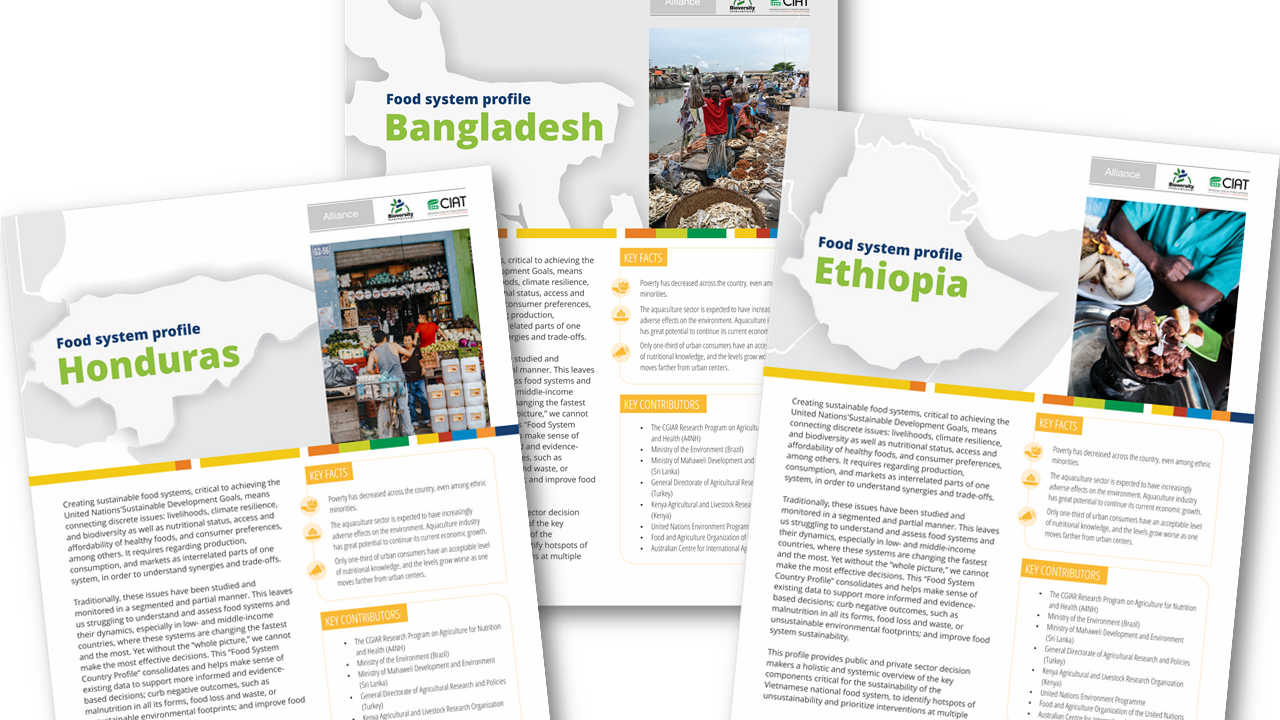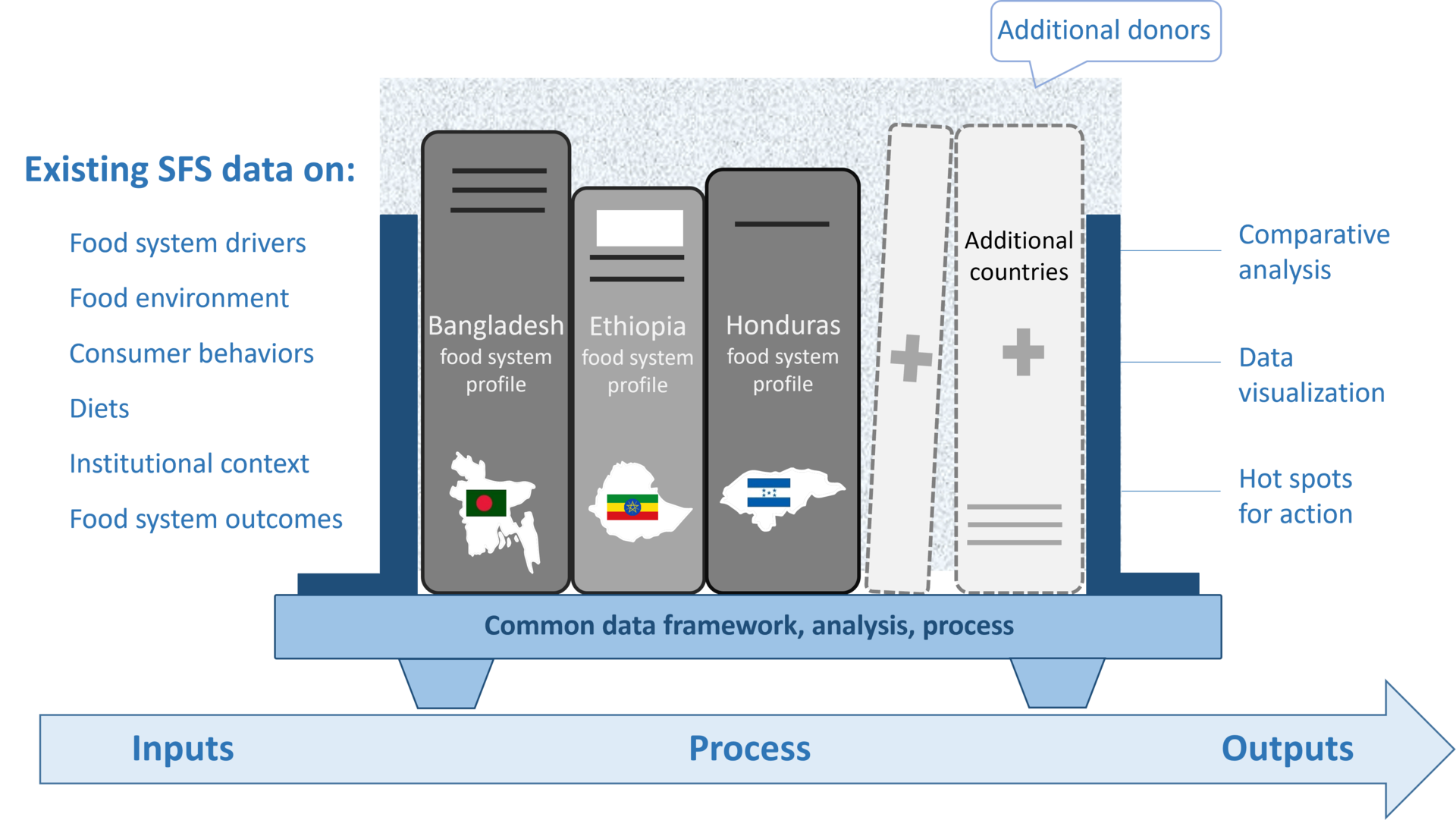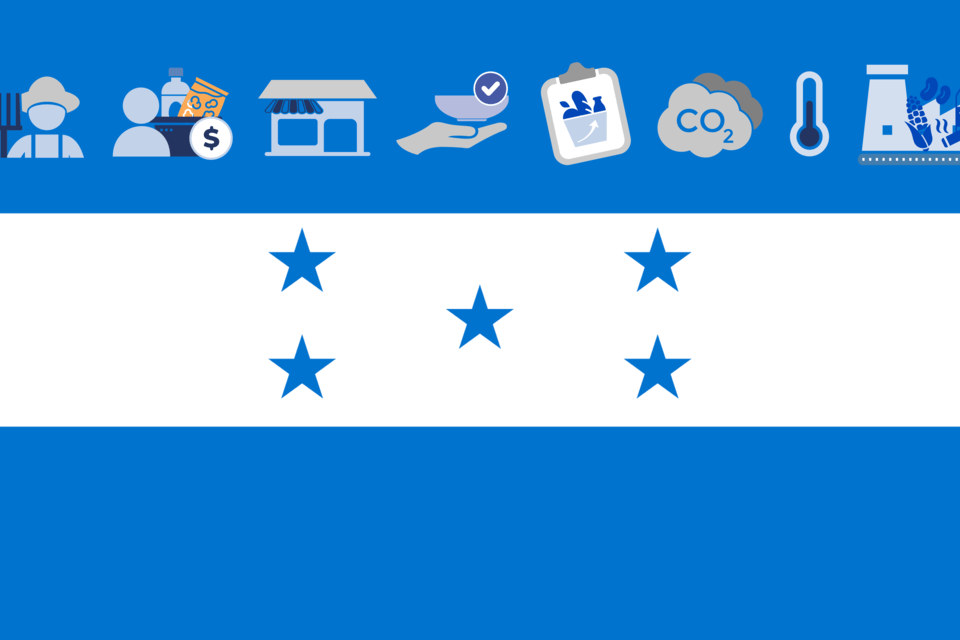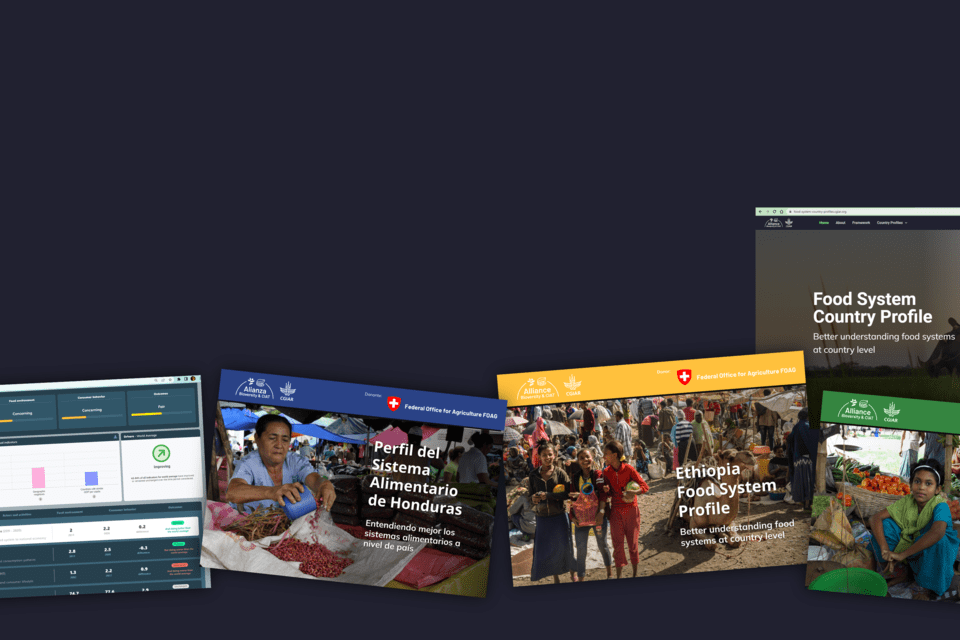Blog Building Food System Country Profiles to support decision-making in Low- and Middle-Income Countries

Much of the work on food systems to date has relied on fragmented and disparate datasets, substantially reducing the capacity of decision-makers at both national and international levels to see the “whole picture” and to make the best decisions to improve the sustainability of food systems.
Since December 2019, the Alliance of Bioversity International and CIAT has been working on developing Food System Country Profiles for Low- and Middle-Income Countries (LMICs), funded by the Swiss Federal Office for Agriculture (FOAG) as part of its support to the United Nations Program on Sustainable Food Systems. These country profiles are short documents that synthesize clearly and visually the information needed for public and private decision-makers to understand their food systems, and to take action.
"The goal is to provide decision-makers with an evidence-based decision-support tool to identify critical points of unsustainability in food systems and prioritize interventions at multiple scales, in order to address these problems through targeted actions and investments. With this initiative we are paving the way for the next 8 years of food system work in low- and middle-income countries” - Mark Lundy, co-leader of this project and director of the Food Environment and Consumer Behavior research team at the Alliance.
Each SFS country profile emerges from collaboration with country-level public and private food system stakeholders, who assist in collecting secondary data and in the validation of results and the identification of key messages. The scope of analysis with stakeholders includes existing food environments, consumer behavior and diets, the institutional context, drivers of food system changes and food system outcomes.
“Having country level workshops with the food system stakeholder in the countries help in making sure that the country specific information, situation and needs are captured, therefore making the food system indicators and reports developed highly relevant to the target countries. The Ethiopia food system stakeholders have been very instrumental in discussing the Ethiopian Food System indicators, which will be a key part of the food system country profile.” - Christine Chege, a Food System Scientist at the Alliance leading the work in Ethiopia.
Through this process, we are building the capacities of decision-makers in three initial countries (Bangladesh, Ethiopia and Honduras) and plan to develop similar country profiles in more LMICs in the near future. In addition, because the country profiles are specific to each country but built around a common framework, this initiative offers an opportunity for a global comparative analysis on food system transitions and transformations, and for generating insights for decision-makers not only at a national but at an international level. For example, these profiles will contribute to the UN Summit on Food Systems in September 2021, and the process is Supporting the Food System Dialogues for Honduras ahead of the UN summit.
“Our unit is responsible for the country’s food security; we track progress on action plans and monitor the food insecure population. The food system analysis process has been very valuable as the Alliance team showed us how to characterize the system, which was new to us, and is a very important step in a process that we will continue to deepen, at both national and sub-national levels. We see this as a useful exercise for decision makers, to stimulate reflection on where we need to improve and to come up with strategies.” - José Lino Pacheco, Food Security Technical Unit Director (UTSAN).
With this blog and those to come, we wish to share our experiences and lessons learned, through the process of creating the country profiles, in the hope that our new data collection and analysis protocol will facilitate the inclusion of additional countries. As the number of countries increases, so will the power of the analytical framework to help answer key questions for the development of sustainable food systems in LMICs.

Figure 1. Overall project logic
In the second delivery of this story, we will share with you the path traveled so far in the construction of the national food system profile for Honduras.


